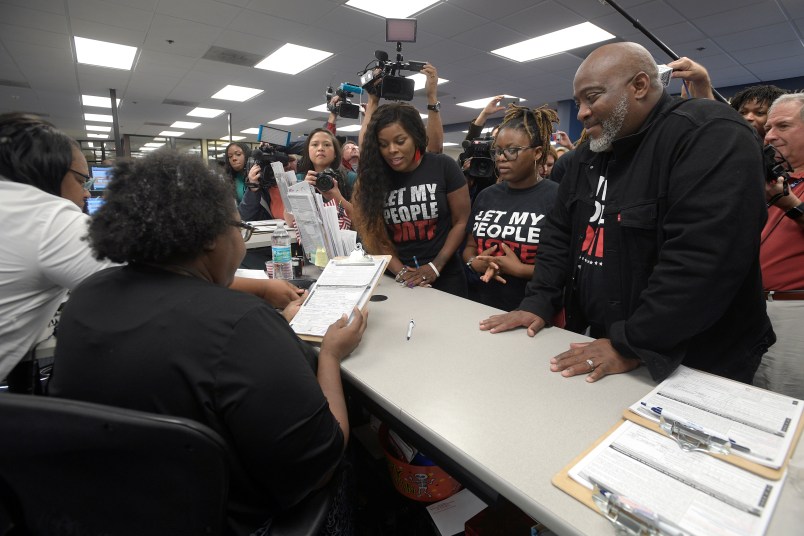A federal judge’s ruling striking down Florida’s ex-felon “poll tax” law was put on hold Wednesday, after the full U.S. Court of Appeals for the 11th Circuit voted to hear the case.
Florida had used an uncommon procedural move to get the case in front of the full circuit court — which was recently flipped to a majority GOP-appointed court — while skipping the usual step of having the case first heard by a three-judge panel from the appeals court.
The 11th Circuit said Wednesday that it would follow up with an order laying out a briefing schedule. At stake are the voting rights of hundreds of thousands of ex-felons in the swing state who still owe court fines and fees. The trial court judge had ruled that Florida could not block ex-felons from voting if they could not afford to pay off those fees.
Florida voters approved in 2018 a constitutional amendment restoring the franchise of more than 1 million ex-felons in the states. The Republican legislature passed a law in 2019 requiring the repayment of all court fees before an ex-felon can register. It was immediately met by a legal challenge from individual ex-felons and from voting rights groups, who have argued that the regime amounted to an unconstitutional poll tax.
The state suffered a series of legal defeats in its defense of the law, culminating in the ruling in May by U.S. District Judge Robert Hinkle concluding that the law was unconstitutional.
The spring 2020 trial made clear that election officials had not worked out a process for keeping track of which ex-felons who still faced financial obligations that made them ineligible to vote under the 2019 law. An expert for the challengers testified that nearly 80 percent of the 1 million-plus ex-felons covered by the 2018 ballot initiative owed $500 or more in court fees.
Hinkle’s order set up a system for determining if an ex-felon seeking to register to vote was unable to pay pending court fees.
The 11th Circuit granted the state’s request to put that order on hold while it hears the case. Of the ten appellate judges who are considering the case, six are GOP appointees. Five of those GOP appointee were put on the circuit court by President Trump.



